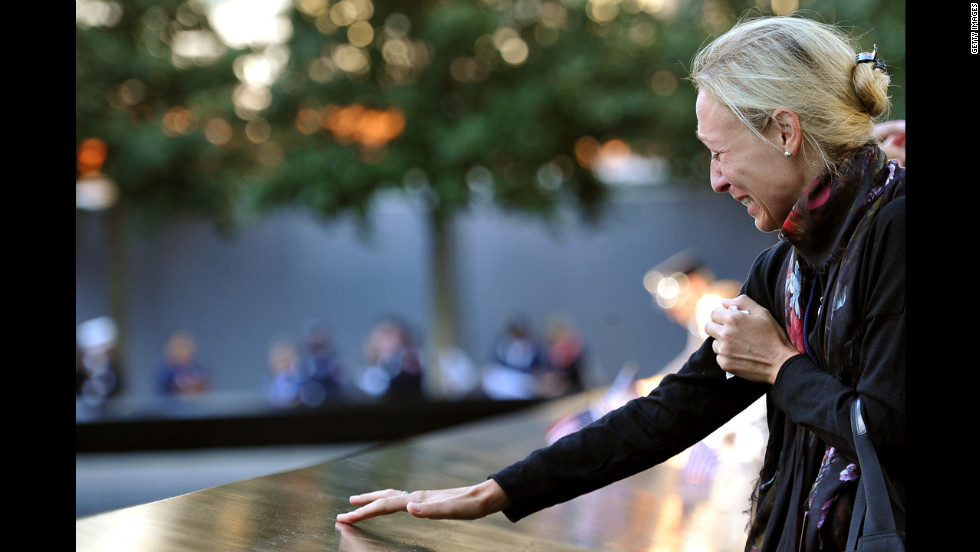 Hope is the thing with feathers that perches in the soul - and sings the tunes without the words - and never stops at all. Emily Dickinson Fourteen years ago today I stood with my son in front of the television in our suburban California living room, our eyes riveted to the image of the second tower falling. We were incredulous, frightened by the power of an unknown enemy, by the space between coasts. The West as vulnerable as the East. Was San Francisco next? Or Los Angeles? Or Sacramento where we lived? Our belief in safety was forever changed. 9/11 changed the way I envisioned my country. I changed political parties. I rethought my concept of revenge and justice. I feared for our country's blind hatred that would eventually further destabilize the Middle East. The president was not speaking to me or for me. The earth beneath my feet was no longer solid ground. My husband had left California just a few days earlier to begin a new job in Tennessee. He would not have left if he'd known what was about to happen. Our lives began to mirror the country's collective unrest, eventually moving us from suburban Sacramento and trendy Nashville to Oregon and then on to Colorado. We were caught in the slipstream of change that all Americans have since endured. For some, security became all-important, their angst projected onto granite counter tops and stainless steal appliances. Maybe we couldn't stop terrorism, but we could keep our family safe in a perfect environment without too many walls. We wanted open concept living spaces, where we could watch every move our children made. Safety became a national obsession. 9/11 opened us to the uncomfortable knowledge that we are never completely safe. We are no longer observers of national suffering, we are participants. Like the refugees currently fleeing Syria, we learned that safety and security are elusive concepts, not guarantees. 9/11 opened Americans to something raw and terrifying and new, our own vulnerability. It reignited our patriotism, broke our hearts, and sent us out into the streets less sure of ourselves. Our national image was no longer one of invulnerability. We had colors to signify our various levels of safety. 9/11 opened the door to a horror new to our country, as it opened a depth we had not anticipated. More mature nations with their histories of war and famine, loss and renewal, know that depth is the inevitable outcome. Smug in our idealism and youth, we had no idea. We can fear our own depth, or we can accept its necessity. Poets, more than most, allow the edges to be torn away in order to see what resides in the recesses. Beauty can be found in a bleak landscape, as well as a field of flowers. It is not about dwelling continuously in either, but accepting the ambiguity of each. Because of 9/11 America is a country based in ambiguity. How we deal with that reality is important. We can deny it, make an open concept safe-house of our lives, or we can move out among the hurting, among the vulnerable, offering consolation. We are not innocent bystanders anymore, we know what it's like to be flattened by life. We might have gotten our revenge differently, shock and awe giving way to invasion and lies. We are still learning that bigger guns and smarter bombs only make for more dead bodies. Our unchecked anger and fear did not give birth to a safer world, only to an increasingly unstable planet. Our current fascination with the idea of electing non-politicians to run the country is a reflection of our continued mistrust and dissatisfaction . . . fourteen years later we are less a united country than a frayed populace. Still. as the day is memorialized in story and myth, I am left with . . . that thing with feathers that perches in the soul. Maybe it is irrational, maybe I should be more jaded. But I choose to live in that place of ambiguity where hope is as real as despair, where borders are man-made and hatred is a choice. I choose hope over fear. Hope over hatred. Hope over ignorance. What do you choose?
1 Comment
|
Archives
October 2022
AuthorMy writing often deals with the environment, my poetry filled with allusions to natural and man-made disasters. I have unlimited hope though; there is just too much wonder in this world to become a defeatist. To quote Margaret J. Wheatley, '"Hopelessness has surprised me with patience." Categories |
 RSS Feed
RSS Feed
